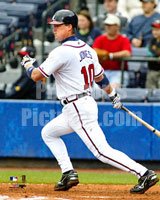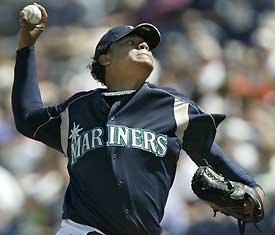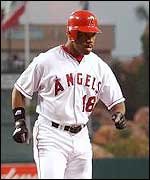A Great Day In Sports
From the first session of games, there was Boston College vs. Pacific. Although I have no love lost for Boston College after the beating they laid on Maryland in the ACC Quarterfinals, I did pick them to reach the Final Four, so you can bet that I wasn't feeling too good when they were down 6 in the first overtime. Luckily, they stormed back to take the game in double overtime, but it was still quite a scare. There's nothing like rooting for a huge upset on Day 1 of the tournament, and in the next slab of games, that's what we got with Winthrop and Tennessee. The Volunteers escaped, but Winthrop had them cornered.
The great thing about the NCAA Tournament is that you have something riding on every game. With the possible exception of the NFL playoffs, no other sport is like that, in no other sport can an 8/9 game for the right to get slaughtered by the top team in the bracket matter so much. But yet, there I sat, rooting on UNC-Wilmington as strongly as I did Maryland this past season. Alas, they shot the lights out to start the second half, but proceeded to blow an 18 point lead and lose a heartbreaker in overtime. The point is, for every game, if you entered a bracket, you have something riding on it, you have a reason to care. And once you care, the rest will just fall into place.
However, what made today extra special was that there was something else going on as well. Out in Southern California, a truly epic baseball game was being played. It doesn't matter in the standings, and a lot of people in baseball are against it, but the World Baseball Classic is here to stay. If anyone turned away from CBS and flipped on ESPN, they saw some great baseball action. A packed house, full of some of the most passionate fans I have ever seen at a baseball game, was watching the USA take on Mexico, with the Americans needing a win to advance to the semi-finals. Witj Jon Miller calling every pitch, the United States couldn't hit Mexico's relievers, as one by one powerful Americans went down. Oscar Villarreal striking out a lineup full of stars, such as Jeff Francoeur, who went down on three straight pitches (Francoeur swung and hit air on all of them, FYI) may not be a pretty sight if you are dressed in red, white, and blue, but if you're just a baseball fan, it makes for some great action. Down 2-1 in the top of the 9th, Angel Stadium was rocking, no thunderstix needed, and Chipper Jones and Alex Rodriguez both drew walks, only to have Vernon Wells ground into a game ending double play. It may only be an exhibition, but it's the best baseball I've seen since last October, and I'll make a large bet it will be the best baseball I see until this October.






